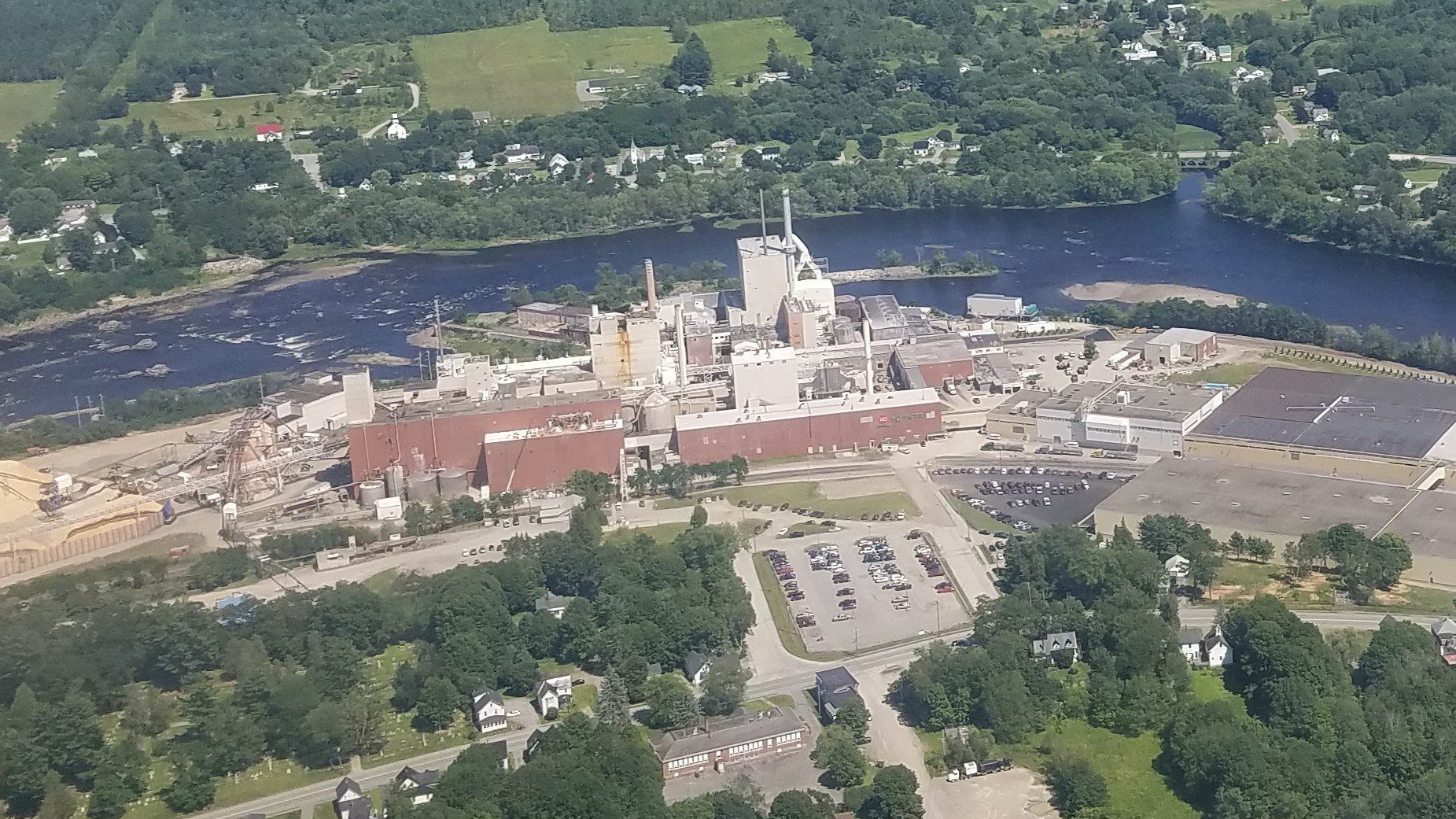State and federal environmental regulators have issued fines against three prominent Maine companies, settling separate cases involving potentially damaging chemicals used in their production operations.
A state penalty of $101,400 was approved against ND Paper in Old Town through an administrative consent agreement with the Department of Environmental Protection. Separately, the federal Environmental Protection Agency issued $373,490 in penalties against Jasper Wyman & Son and Barber Foods for chemical safety violations.
In the ND Paper case, state environmental regulators reported that 30,720 gallons of a sodium hydroxide mix was poured through a drain in September and October 2020 because of an open valve.
The liquid flowed out of the facility to the riverbank of the Penobscot River, where it was ultimately discharged, the regulators wrote in an August memo.
Following discovery of the spill on Oct. 7, 2020, the Maine Department of Environmental Protection reported several dead fish in the area of the discharge and elevated pH levels in a nearby embayment of the Penobscot River.
According to the August memo, this area of the river “continues to be impacted due to ongoing high pH contaminated groundwater discharges.”
DEP staff members reported that the floor drain system associated with the fall 2020 spill has been repaired, though Pam Parker with DEP’s Water Quality Bureau said in a Thursday meeting of the Maine Board of Environmental Protection that immediate extensive repairs were difficult due to the facility’s age.
“… (T)his is an old industrial building with a tremendous amount of legacy piping, but also actively used systems,” Parker said. “So it was hard to be able to wholesale repair the facility …”
A separate, smaller spill occurred at the same building in June 2022, when 1,076 gallons of a sodium hydroxide solution were released over a 30-day period.
Parker said that ND Paper has added remote and physical monitoring systems to further ensure “this will never happen again.”
ND Paper is also tasked with investigating the remaining high-pH material below the building and determining how to remediate the area.
The consent agreement was announced in June and approved Thursday by the board, a seven-member citizen body appointed by the governor.
The money will go toward a project by the city of Old Town to replace and upgrade a culvert on College Avenue.
Jay Capron, a spokesperson for ND Paper, wrote in an email Friday that the company agreed to pay the penalty and has no plans to appeal.
The Old Town mill has since taken extended downtime that began in March, according to Capron, due to market conditions. He said Friday that those conditions have not changed since the original announcement was made and the mill has not reopened.
In a separate action by the U.S. Environmental Protection Agency, Jasper Wyman & Son, the Milbridge-based blueberry company, has agreed to pay $73,490 and provide chemical emergency training to the Cherryfield Fire Department to settle allegations it violated the federal Clean Air Act.
The agency announced the Wyman settlement and another agreement with Barber Foods, LLC, a poultry company in Portland, on Thursday. The EPA noted that both companies use anhydrous ammonia, highly corrosive to the skin, eyes, and lungs, as a refrigerant.
“It’s imperative that companies comply with Clean Air Act requirements in order to protect facility workers and surrounding communities,” said David W. Cash, the EPA New England regional administrator, in a news release announcing the fines.
“Particularly in rural areas, if a chemical accident occurs, it can take time for trained HazMat responders to arrive. We are pleased to say that as a result of the Jasper Wyman & Son (settlement) . . . the Cherryfield Fire Department will be better prepared to respond to chemical emergencies.”
The $73,490 penalty resolved “alleged violations of the Clean Air Act’s chemical accident prevention requirements at its facility,” the EPA said. The agency estimated that training for the Cherryfield fire department on how to address ammonia releases, plus a donation of equipment, was valued at approximately $65,000.
In a statement issued Friday, Jasper Wyman & Son said the company “respects the EPA’s duty to ensure compliance” and noted that the agency’s response was due to the company’s accident prevention requirements, not a specific accident or release.
“Today we are in full compliance with the latest accident prevention requirements,” the statement said, “and we have taken additional steps to ensure our employees and local first responders are as prepared as possible in the event of an emergency.”
EPA said that Barber Foods agreed to pay a combined penalty of $300,000 for alleged violations at its Milliken Street plant and at its St. John’s Street facility. Barber Foods is part of Tyson Foods.
The agency said inspections of the Wyman facility and two owned by Barber identified the violations. “The three cases allege failures to identify, analyze and control certain hazards, failure to document compliance with certain good engineering practices, and equipment maintenance violations,” the EPA said in a release.








